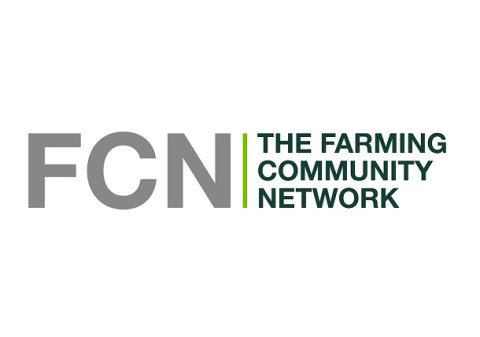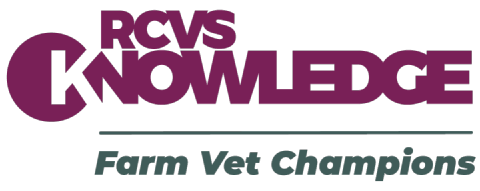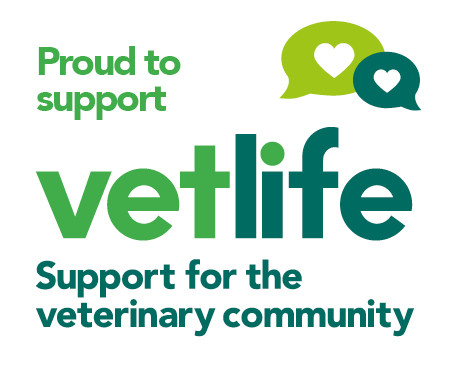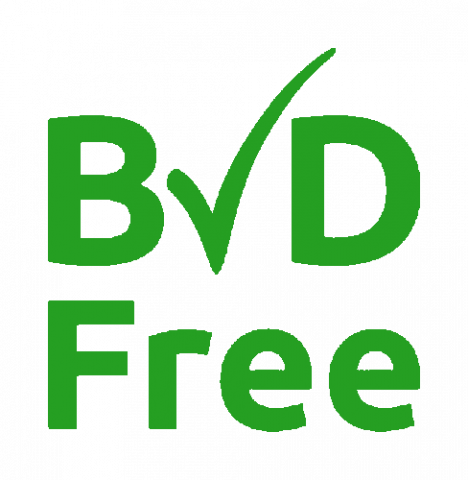British Cattle Veterinary Association promotes the responsible use of medicines.
BCVA AMR Statement December 2016.pdf
In December 2016, BCVA published their position statement on responsible use of antimicrobials (https://veterinaryrecord.bmj.com/content/180/3/58.1) and the two year anniversary provides a good time to reflect on what has been achieved so far and what work is left to do. Good progress has been made with reduction of antimicrobials used in cattle practice, with data for the dairy sector indicating a 35% reduction compared to 2016 and a 28% reduction in usage of HP-CIAs (high priority critically important antimicrobials) (UK VARSS Report 2017). BCVA continues to recommend reviewing medicine usage, with an aim of reducing the overall amount of antibiotics used in cattle practice. And while the dairy and beef sector are already meeting some of the voluntary targets set, the aim is to further reduce these levels to meet, or exceed, all these targets by 2020 without compromising health and welfare. (https://www.ruma.org.uk/wp-content/uploads/2017/10/RUMA-Targets-Task-Force-Report-2017-FINAL.pdf).
With regards to use of HP-CIAs, BCVA recommends a cessation of the use of colistin, third- and fourth-generation cephalosporins and fluoroquinolones in cattle; unless in exceptional circumstances where it has been demonstrated by microbiological testing that they are the only suitable choice of medicine to avoid unnecessary suffering.
The prophylactic use of antibiotics is to be avoided wherever possible without compromising animal welfare. Where it is used, it should be regarded as an interim measure whilst alternative management and vaccination strategies are implemented.
All cows which comply with recommendations for internal teat sealant should be considered for such non-antibiotic treatments along with reducing the use of antibiotics at drying off.
BCVA continues to recommend that every farm should work with their veterinary surgeon to develop and implement their herd health plan which embraces all the disease control strategies appropriate for disease reduction on each farm. This should include active monitoring and involvement with their farm veterinary surgeon. Training using stakeholder material such as the NOAH Animal Medicines Best Practice (AMBP) initiative is available either working with a farm’s veterinary surgeon or as self-directed learning. In addition, best practice with regards farm management should be followed – suitable examples are the Red Tractor guidelines.
With regards to infectious endemic diseases, BCVA further recommends that all herds should establish their herd health status and work towards controlling or eradicating these diseases to aid in reduction of antimicrobial use. For example, BVD and Johne’s are known to result in an increase in antibiotic use. CHeCS and other schemes can help with control of such diseases.
Alongside this, BCVA recommends the increased use of diagnostics, to identify disease such that appropriate treatments can be selected, and management and vaccination programmes instituted to prevent or reduce the severity of disease.
BCVA urges veterinary surgeons to work closely with their farm clients to ensure that medicines are stored according to manufacturer’s recommendations, including the monitoring of fridge temperatures, and that medicine use on farm is appropriately recorded. Incorrectly stored, inappropriate and out-of-date medicines should be removed from farms and disposed of correctly.
Finally, BCVA recommends dairy farmers responsible for medicines use on farm undertake the MilkSure training course https://milksure.co.uk/ to minimise the risk of medicine residues entering the food chain.
Tackling antimicrobial resistance 2019–2024 - The UK’s five-year national action plan
VETERINARY MEDICINES REGULATION IN THE EVENT OF A NO DEAL – VMD INFORMATION ON GOV.UK
Throughout the government’s negotiations to leave the EU on 29 March the Veterinary Medicines Directorate (VMD) has developed plans for all possible outcomes including no deal.
We have therefore published on GOV.UK our EU Exit Information Hub www.gov.uk/guidance/eu-exit-information which sets out what vets and our other stakeholders will need to do differently if the UK leaves the EU without a deal. It also sets out the areas of veterinary medicines regulation where there will be no change.
For vets the areas you will need to do things differently in the event of a no deal are:
- Applying for a Special Import Certificate/Special Treatment Certificate
- Operating the prescribing cascade
Please visit the Veterinary Medicines Directorate’s EU Exit Information Hub www.gov.uk/guidance/eu-exit-information for detailed advice and guidance on the above areas and all areas of veterinary medicines regulation that will and won’t be changing in the event that the UK leaves the EU without a deal.
The VMD will continue to assure the safety, quality and effectiveness of all veterinary medicines authorised in the UK to protect animal health, human health and the environment.







